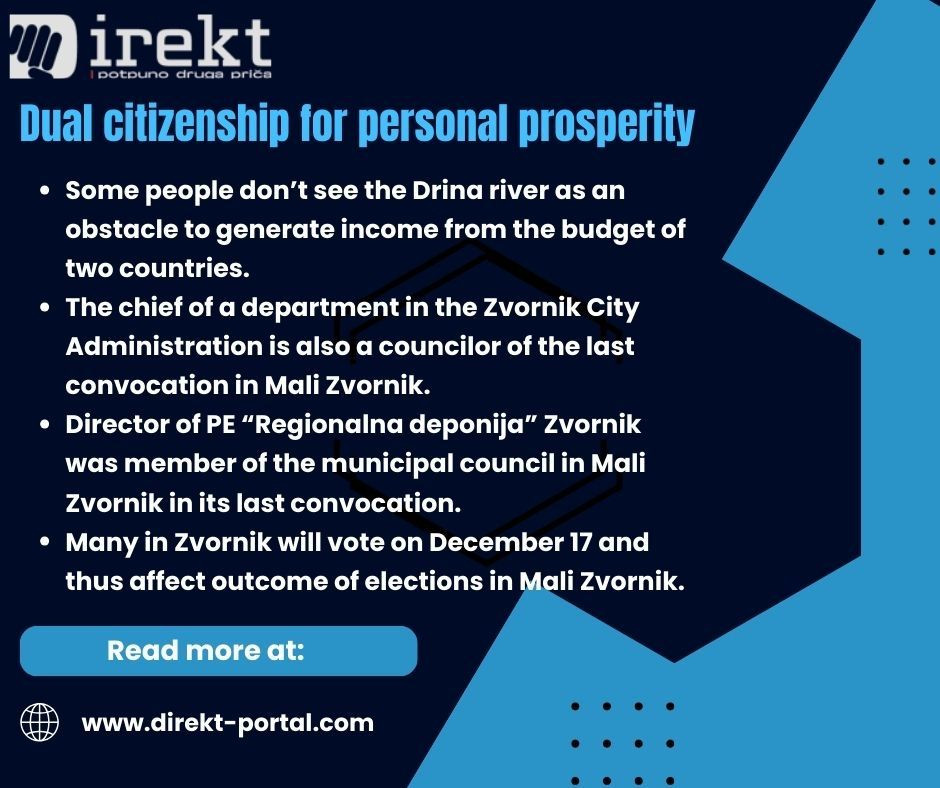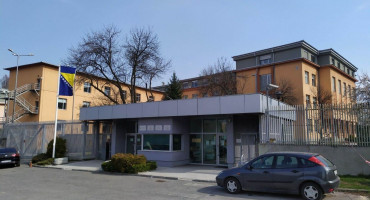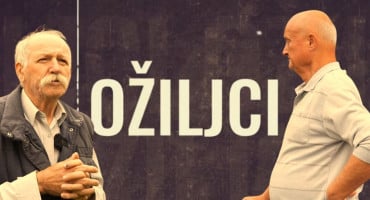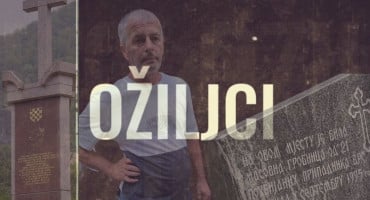How is dual citizenship shaping electoral processes in Zvornik and Mali Zvornik

Ljiljana Toholj is the head of Economy Department of the City of Zvornik in BiH. She was also a councilor in the municipality of Mali Zvornik in Serbia until a month ago. Thus, she is among those (few?) who have used statutory opportunities and the system to receive incomes from the budget of two states.
However, she may not be the most blatant example of people who live in one country and earn money in another. According to many it is Zoran Stevanović, a man who was the head of Zvornik for 16 years and has lived in Loznica. In addition to being a businessman and millionaire, Stevanović still lives in Loznica, but governs RS where he is a councilor, contributes to the SNSD party as chairman of the Zvornik city board and manages Alumina since he chairs the Board of Directors of that largest exporter in RS.
Resides in one, but sleeps in another country
“The voters did not attach too much importance to that. When the pressure on Mr. Stevanović was the strongest, he promised to buy an apartment in Zvornik. He explained how he is from a village near Zvornik originally, how he has citizenship and how he resides in Zvornik, but only sleeps in Loznica. The people just got over it and it was accepted,” explained Bojan Lukić, head of SDS caucus in the Assembly of the City of Zvornik, who has raised the issue that Zvornik is run by people who do not live there.
“As a SDS councilor I have repeatedly pointed out that our city is run by the outsiders. In one period of time the mayor of the city of Zvornik lived in Loznica, directors of the hospital and the health care center lived in Mali Zvornik, and the chief of police administration lived in Vlasenica. Every important institution was run by people who did not live in Zvornik. The situation in Zvornik can be depicted somewhat as schizophrenic, there is no logical explanation. There was practically no person responsible in Zvornik after three o’clock in the afternoon when those people were in the office - starting with the utility company and the power distribution company, all the way to the city mayor “, explained councilor Lukić.
Volunteer in local self-government
Technologist Aleksandar Vračević, although much younger, is on a similar track. Until the dissolution of the Assembly of Mali Zvornik, he was a member of the Municipal Council, a body that coordinates between the president and the municipal assembly and is responsible for overseeing the work of municipal administration. On the other hand, Vračević has been the director of PE Regionalna deponija (regional landfill) Zvornik for 10 years, and he is also the president of the Assembly of the association of utility and service industries of the RS Chamber of Commerce. Unlike Ljiljana Toholj, he played his political role in Mali Zvornik as a volunteer, he said in a short telephone conversation.
“And you from Trebinje are also interested in Zvornik? This is something completely normal for someone who has citizenship and who is originally from that area. People were connected even before the war. We have 200 children going to school there (in Zvornik, author’s remark). We see it as one area”, said Aleksandar Vračević from Mali Zvornik in a phone conversation, stressing that he is not member of any party in BiH. However, the website of SNSD reveals that someone with the same first and last name, as well as an address in Zvornik, is on the list of SNSD members and in the party’s main board, on number 74.
Neither Vračević nor Toholj have put forward their candidacies for the elections that will be held in Mali Zvornik on December 17. Ljiljana Toholj referred us to the official bodies of the two local communities. In her answer to the questions she underlined that she has never been on any list in Zvornik as a candidate. She won the seat in the Municipal Assembly of Mali Zvornik with the list of the citizens’ group “Snaga Naroda” dr. Milan Lukić. Vračević was also a candidate of the citizens’ group “Za bolji Mali Zvornik” Kostjerčević Dragan at the last elections.
“It was established and run by a man who has a business in Velika Plana, ethnographic village “Moravski konaci”. He was also brought into connection with some shady transactions regarding the privatization of the brick factory in Velika Plana, which is why the deputy director of the BIA, Dragan Marković Markoni, was suspected of sabotaging the police in the investigation against, as the media reported at that time, a suspicious businessman. He also had a personal conflict, not with SNS, but with the local people from SNS, but he also had connections with people from SNS from Belgrade,” explained our interlocutor from Mali Zvornik, who prefers to remain anonymous. He also added that citizens’ group have been participating in the elections for years now and getting into coalitions with those who give more. The same will happen at the elections on December 17.
“Every certified list is entitled to a certain number of members in the election commission and observers at the polling stations. Unofficially, there are two or three certified lists for these elections, although it is known that they are members of SNS”, claims our source.
A well-known fact
Direkt’s interlocutors emphasize that voters from Zvornik have great impact on results of the elections in Mali Zvornik.
“A great number of Zvornik residents has the right to vote in Serbia. There is only a bridge between us, majority has dual citizenship. It is not possible to say exactly how many people there are, but it is certainly over a thousand. And now imagine what kind of machinery it is, what kind of power is in the hands of the people on this side of the Drina River when about a hundred votes are needed for one councilor there. If someone, on this side of the Drina River, would get really organized, they could easily have parliamentary majority in Mali Zvornik. You can imagine the absurd - to have, for example, a group of citizens running for the office there and winning,” explains councilor Bojan Lukić.
On the other hand, the residents of Mali Zvornik have no influence on the electoral process in BiH.
“You need between 1200 and 1300 votes to be elected councilor in Zvornik, and there are 50 to 100 persons from Mali Zvornik who have the right to vote in BiH. Those are mostly elderly people, originally from Zvornik, who had bought apartments in Mali Zvornik, because the apartments there are three times cheaper and you only have to cross a bridge. We are the ones who were taking their citizenship, not the other way around,” explains councilor Lukić.
Milovan Samardžić, president of the Centar local community in Mali Zvornik municipality, has indirectly explained the degree of impact that voters from BiH have. We asked him about the degree of impact that voters from BiH have on the elections in Mali Zvornik.
“They absolutely have an impact. There are more people who are voting from Zvornik than from Mali Zvornik. It is a well-known fact. And what happens?”, said our interlocutor resignedly. Nevertheless, we continued our conversation.
-Do you vote in Zvornik, do you have an ID card of BiH?
-No, I don’t need it.
-How many people from Mali Zvornik vote in Zvornik, how much do they exercise that right? -I don’t think they exercise it at all.
-Are their interested in elections in BiH? -I don’t think so.
-Why are people from RS interested in elections in Serbia?
-You are a journalist; you know the answer. I think it is a public secret, you know the answer.
-There is some evidence, one can speculate, but since you are president of a local community I assume you have first-hand information about what is happening.
-You can assess that logic yourself.
-If I would say that it is done to affect results of elections in Mali Zvornik. That a more convincing victory of SNS is secured through support of SNSD members, would I be close to the truth?
-Just use logic and there is no problem, because it is ultimately the only right thing to do, said the president of local community at the end of our conversation.
“According to the information I have, SNSD has in the last three cycles advised their voters to vote for SNS. They even opened a polling station on this side of the Drina river. No one, except people close to SNSD, could be a member of the polling station committee and they had received clear instructions to support SNS in Mali Zvornik in the three last election cycles”, Bojan Lukić explained.
It's not fair, but it is useful
He believes that it is not fair for a political party from RS to interfere with the elections in Serbia and decides about the problems it is not familiar with and about people whose needs it doesn’t know. He answers confirmatory to the question if the elections in Serbia and Mali Zvornik scheduled for December 17 are discussed in Zvornik today.
“As never before. There are, for the first time, billboards across RS from which Vučić and SNS are asking for a vote. Not only in Zvornik, but in the surrounding cities such as Šekovići, Vlasenica, Milići, there are billboards with messages of support to SNS. We did not have that in Zvornik before, but since SNSD absolutely controls Zvornik it is entirely clear under whose directives and orders it was done. We have nothing against that, but we believe it is not fair to have either of the sides interfering in the other side’s business”, said Lukić.
Aleksandar Vračević from Zvornik is the member of the SNSD’s Main Board
In an opposite situation, since there are much less voters in Mali Zvornik, any significant influence on the election results is not possible.
One of the interlocutors, who did not want us to reveal his identity, says that he has lived in Mali Zvornik since birth and, like many, crosses the Drina river every day for work.
“There is no work in Mali Zvornik, you cannot find a job. Zvornik is a city, and this is small and underdeveloped area. Development of economy in Zvornik is something that has been inherited from the former Yugoslavia. Many residents of Loznica are working in Alumina today, although that number is decreasing since some are retiring or taking severance, and there were also dismissals. It is a complete normal phenomenon here and dual citizenship is a necessity. For the Bosnians as well, so their children could go and study in Belgrade and Novi Sad. Serbia is much closer than Sarajevo and Banjaluka”, adding that residents of Zvornik are very much interested in elections in Serbia.
“I don’t believe that everyone will vote for SNS by default. There will be votes for SPS. The founding assembly of “Naša Drina” was held in Zvornik, and there were many people from SNS, and that association is close to the socialists. Socialists were the opposition in Mali Zvornik during the previous term. They did not support decisions of the municipal president, SNS had majority so they did not need socialists. In fact, personal interest is behind everything,” explains our interlocutor.
“It is quite possible for the socialists to make a comeback. Vučić has said that LSV can form a coalition and have majority. He did not mention Dačić. Opposition could also have good results, but I see a comeback of socialists”.
SDS councilor in Zvornik also believes that SPS could count on a more significant support of the voters from RS.
“I have some information that the president of the Board of Directors in the alumina factory “Birač” in Alumina, Stevanović, had 7 to 10 days ago asked those people who can vote in Serbia for the ID cards. There’s a lot of pressure there, believe me. As far as the Socialists are concerned, I think they have made a good move by establishing the “Naša Drina” association. I see that there was a serious group of people at the meeting and that they have enormous potential. The initiative comes from SPS people from Serbia”, said Lukić.
We wanted to ask the president of the municipality, who has been heading this local self-government for a decade, but also the Municipal Committee of the Serbian Progressive Party (SNS), about how he sees the relationship between Mali Zvornik and his big brother on the other side, as well as what is the degree of both economic and political impact.
The secretary answered our phone call and asked us to leave a number so that the president could contact us, but this did not happen until the time this text was released. We didn’t even get answers to the questions sent to the official email address.






